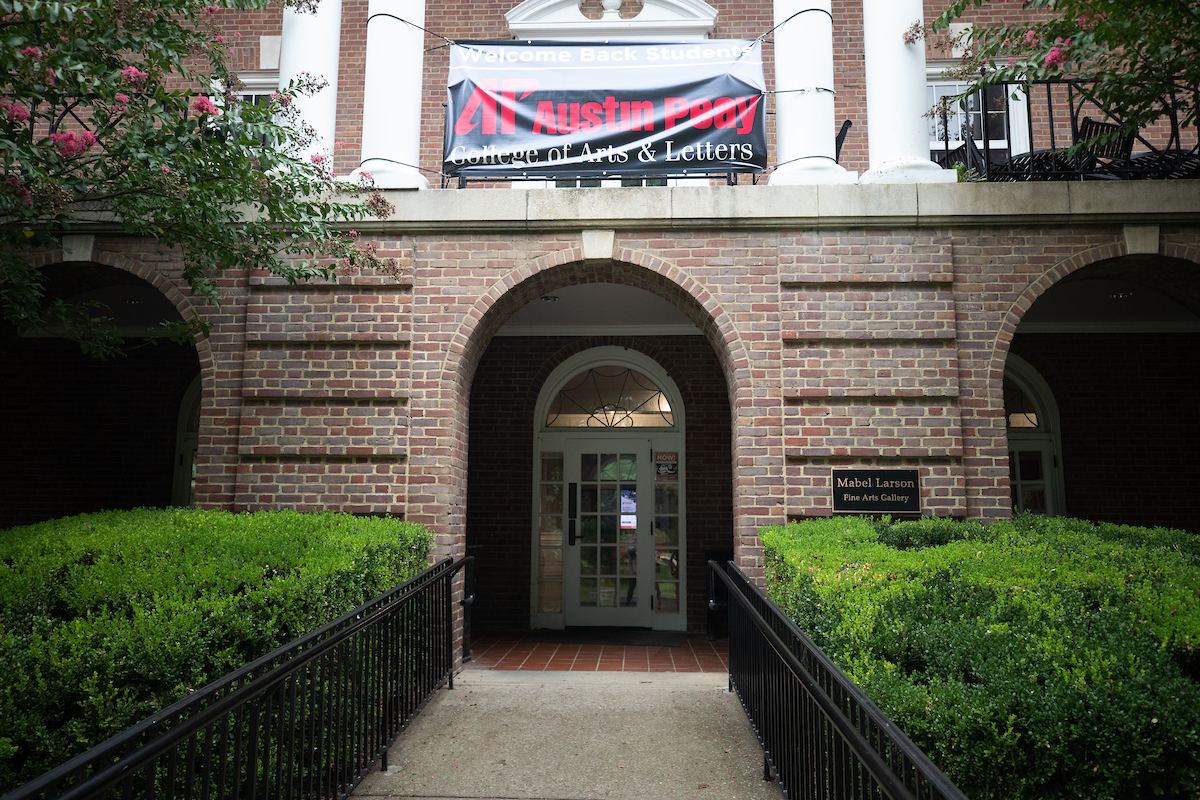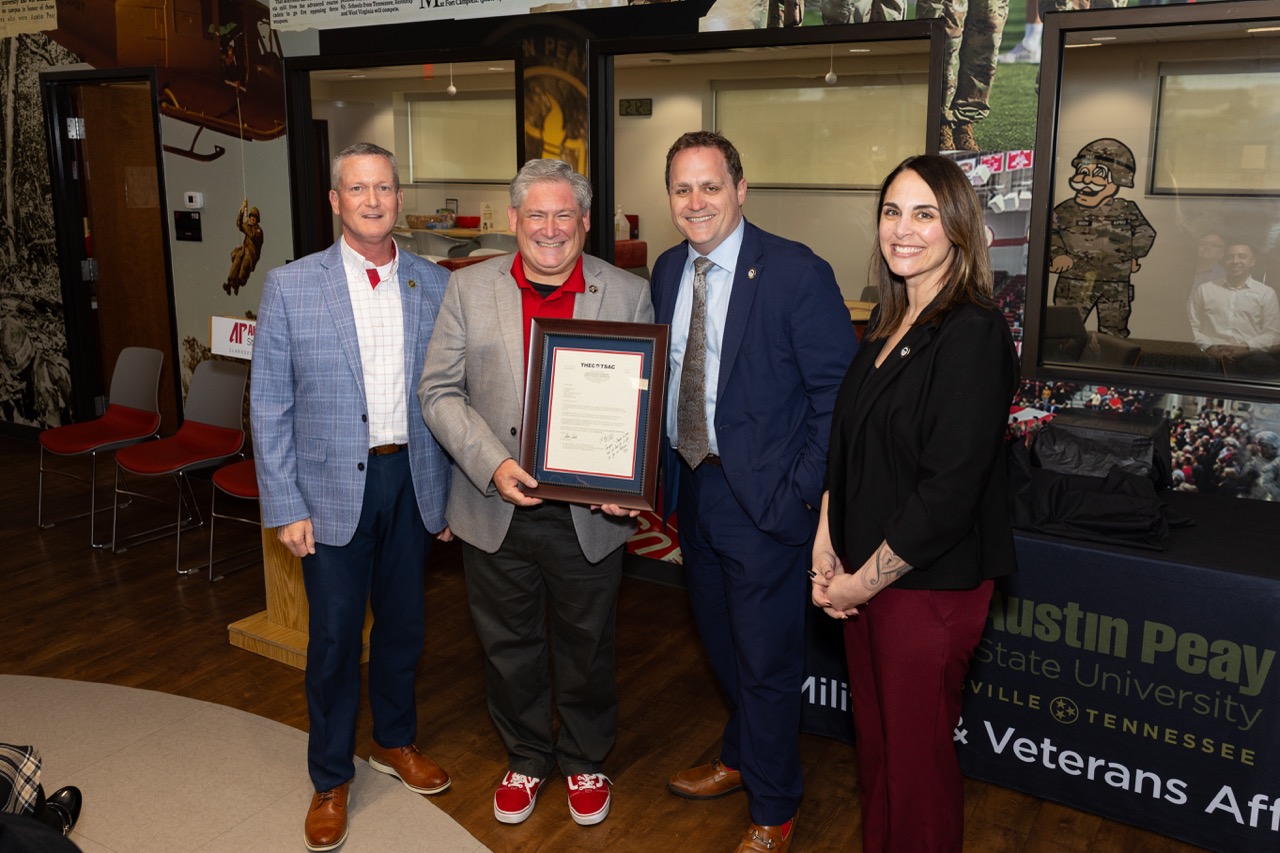College of Arts & Letters announces multifaceted plan to ‘counteract and challenge’ systemic racism

(Posted July 23, 2020)
The College of Arts & Letters at Austin Peay earlier this week announced an affirmation of the Black Lives Matter movement and a commitment to working against systemic racism.
As part of that commitment, the college announced an action plan for the following year and beyond in an effort to “counteract and challenge” racism.
“We understand that higher education is complicit, and we have been part of the problem,” the college announced in a statement made on social media on Monday. “We are committed to dismantling these structures to create a more equitable, just, and safe world.”
College of Arts & Letters faculty and staff are working now on launching the action plan this fall semester, said Barry Jones, dean of the college.
“What I hope is that in the long term, we make real change, not just token change,” Jones said. “We really want to change how we teach, and we want to improve the diversity within the College of Arts and Letters”
The events of this spring and summer – nationwide Black Lives Matter protests that followed the May killing of George Floyd at the hands of Minneapolis, Minnesota, police – inspired the college’s decision-makers to discuss systemic racism and what they could do to counter it, Jones said.
“It just seemed like it reached a boiling point,” Jones said. “The Black Lives Matter movement has been around for some time, but now really seemed to be the time, and I think it’s important as educators that we acknowledge the role we play in systemic racism.
“We are taking a hard look at everything that we do,” he added.
What does the action plan do for students?
In the action plan, the college vows to:
- Create scholarships, funding and research opportunities for Black students. In the coming year, the college will budget more than $2,000 for research grants for Black students and begin fundraising for an endowment for scholarships and research grants for Black students.
- Create a Black Student Advisory Group that will meet monthly with deans and chairs. “We want them to tell us when we’re making mistakes, when we’re doing things right,” Jones said.
- Work more closely with the Wilber N. Daniel African American Cultural Center on campus.
- Improve advising and mentoring for Black students.
- Revise curriculum to add more diverse and representative voices. The revision will start with an analysis of fall general education offerings and the introduction of new general ed curriculum in the spring. The college will expand those changes to majors during the 2021-22 academic year.
“We make choices in history, in literature, the visual and performing arts of what we teach, and those often are not diverse,” Jones said.
The college will have more details about how students can get involved (applying for grants and the advisory group, for example) once the fall semester begins, Jones said.
What does the action plan do for faculty and staff?
The college also will make changes focused on countering systemic racism that targets faculty and staff. The action plan calls for:
- A task force to lead the college’s work against racism.
- A focus on recruiting and hiring faculty and staff with diverse backgrounds, putting a requirement on teaching and supporting diversity inside and outside the classroom.
- A commitment to creating a workplace that values, supports and empowers faculty from underrepresented groups and acknowledges the historical impact of underrepresentation.
- A commitment to equity regarding departmental, college and university service requirements.
- A focus on inviting visiting artists who embody marginalized voices.
- Training from the Office of Equity, Access and Inclusion for faculty and staff.
“If you look at the makeup of our faculty in the college, it doesn’t represent the students,” Jones said. “We have some work to do to better represent our student body.”
Jones added: “We overburden our Black faculty with the invisible work they do, particularly the mentorship and committee work (in an effort to have diverse representation).”
Jones hopes that in five years, the college will be more diverse and celebrate more diverse voices.
“I want us to become a community of diverse voices and diverse points of view, where we can talk about tough issues and about how our study of humanities and the way we make art can address and solve problems,” he said. “It’s something everybody needs to look inwards about and create a really vibrant, diverse community of academics and students. That’s my dream.”
To learn more
- To read the full statement and action plan, go to https://www.apsu.edu/coal/blacklivesmatter.php.
- Read “If Austin Peay Could Speak,” a series of essays by Black APSU employees that shares their encounters with racism, by visiting apsu.edu/news each Friday.
- To learn more about the College of Arts & Letters, go to https://www.apsu.edu/coal/.
News Feed
View All News
Austin Peay State University has received Tennessee's first VETS Bravo Campus designation, emphasizing outstanding support for military-affiliated students, who make up 30% of the enrollment. This recognition highlights APSU's commitment to dedicated programs, mentorship initiatives, and career services for veterans transitioning to civilian careers.
Read More
Directed by Dr. Penelope Shumate, director of APSU Opera Theatre and associate professor of voice, this performance features a narrative based loosely on the life of F. Scott Fitzgerald and his marriage to Zelda Fitzgerald.
Read More
Dr. Dawnie Wolfe Steadman, director of the UTK Forensic Anthropology Center, will deliver a special lecture and Q&A session on May 1 as part of the revived College of STEM Lecture Series.
Read More